How to Choose the Right CNC Machine Tools for Your Business Needs
In today's competitive manufacturing landscape, the selection of the right CNC machine tools is crucial for optimizing production efficiency and meeting customer demands. According to a recent report by Markets and Markets, the global CNC machine tools market is expected to reach $100.23 billion by 2025, growing steadily at a CAGR of 6.4%. This growth is driven by advancements in automation and the increasing need for precision in manufacturing processes. As businesses seek to enhance their operational capabilities, understanding the various types of CNC machine tools available, their applications, and the specific needs of one's production environment becomes essential.
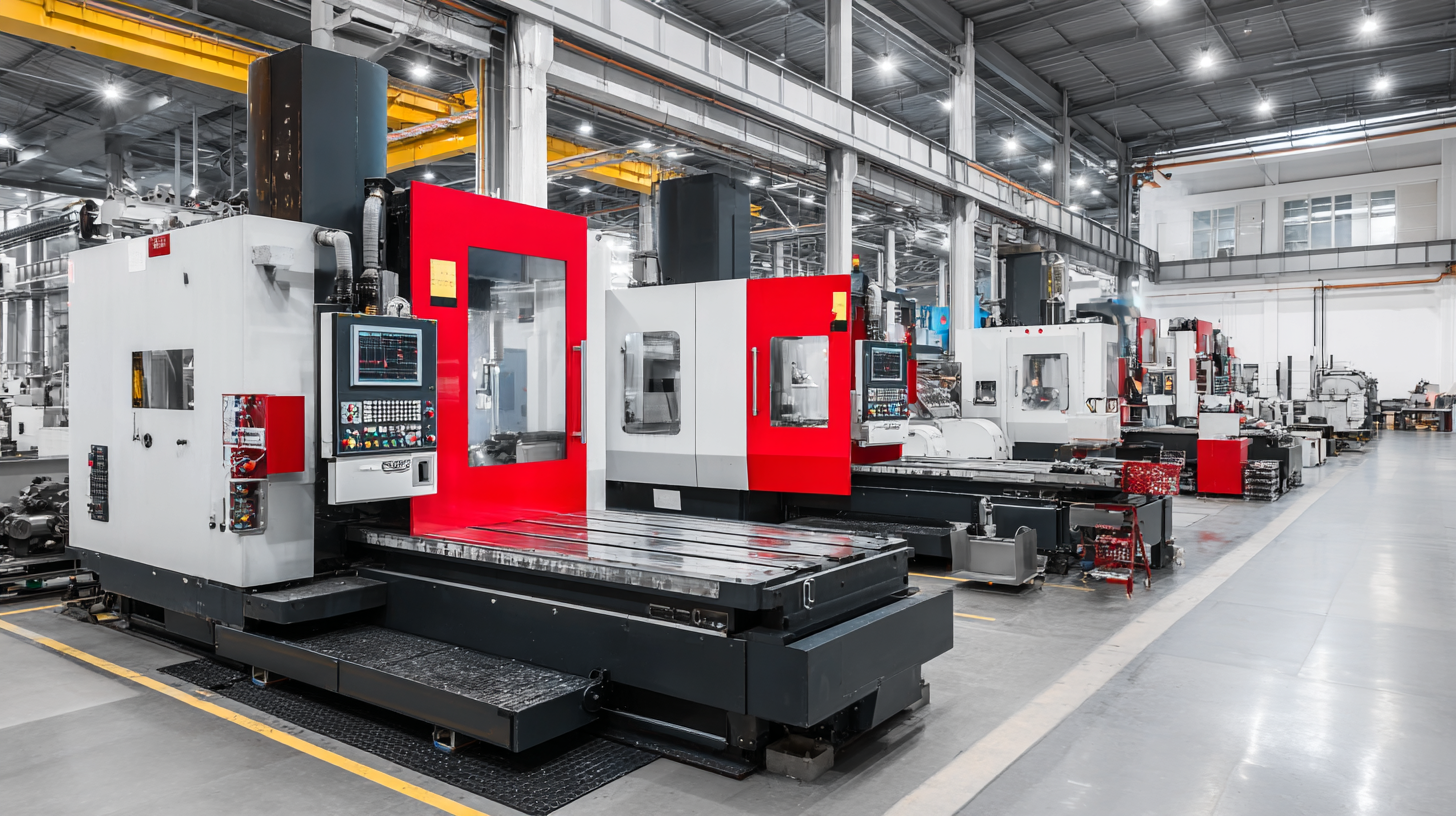
This blog aims to provide insights and practical tips for selecting the most suitable CNC machine tools that not only align with current business requirements but also position companies for future growth and innovation.
Understanding Your Business Requirements for CNC Machines
When selecting CNC machines for your business, it is imperative to first understand your specific operational requirements. Key considerations include the type of materials you will be working with, the complexity of the parts to be produced, and the desired production speed. According to recent industry insights, the CNC tube bending machine market is expected to grow from USD 0.48 billion in 2023 to USD 1.43 billion by 2032, representing a staggering CAGR of 47%. This significant growth indicates an increasing demand for precision machinery that can adapt to diverse manufacturing needs.
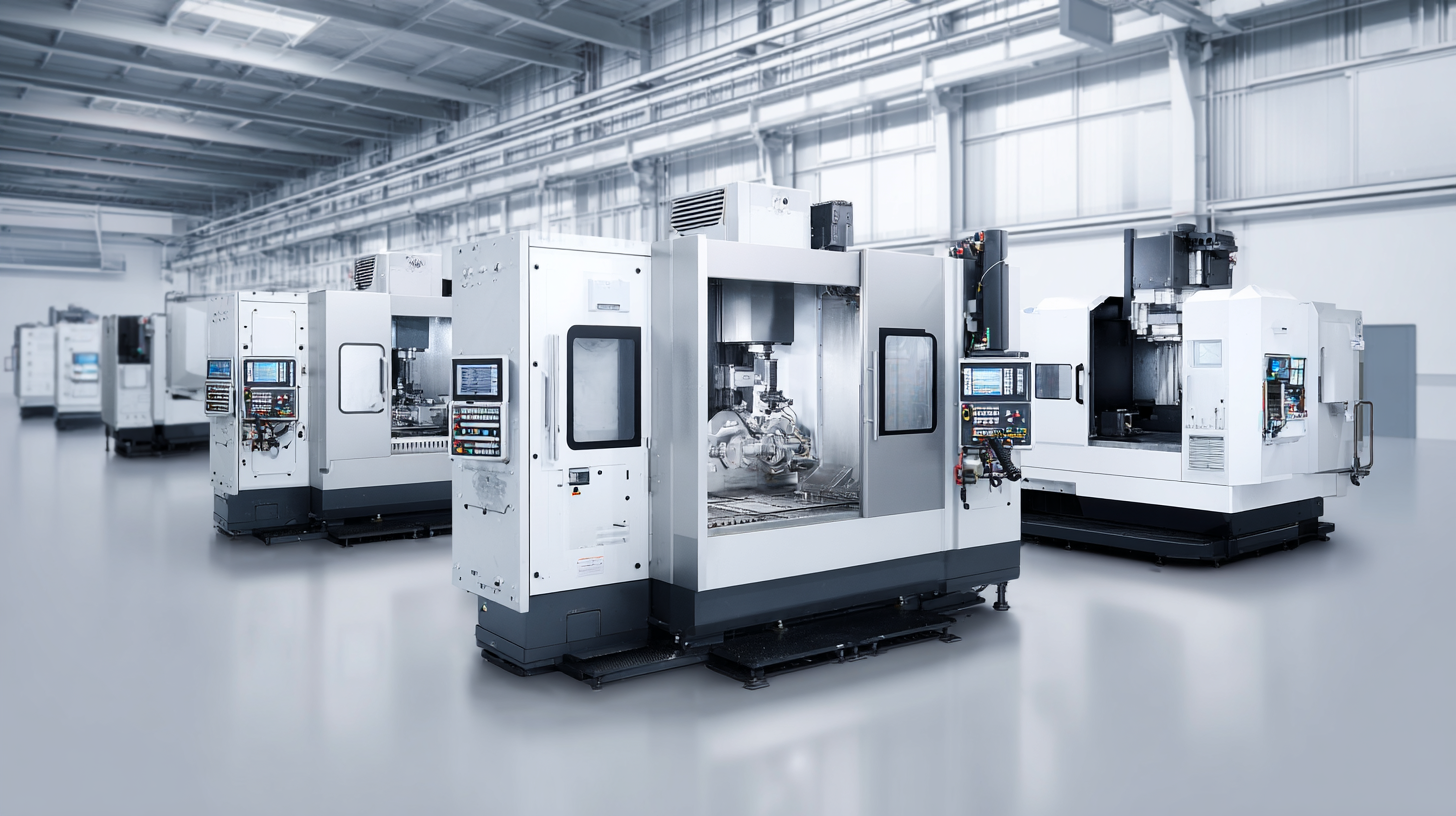
In the context of expanding capabilities, businesses should also evaluate the integration of CNC machines within their existing IT and operational technology environments. Securing these machines is crucial, especially as they often operate within networked setups that can pose significant cybersecurity threats. This increasingly interconnected landscape necessitates a robust strategy for protecting sensitive data and equipment, underscoring the importance of selecting CNC machines that not only meet production needs but also align with security protocols. Identifying these layers of requirements ensures that your investment in CNC technology yields maximum productivity while safeguarding your operations.
Key Features to Consider When Choosing CNC Machine Tools
Choosing the right CNC machine tools for your business is essential for maximizing productivity and ensuring high-quality output. When evaluating CNC tools, consider key features such as precision, speed, and the type of material they can process. According to a study by the International Federation of Robotics, the precision of CNC machine tools can increase operational efficiency by up to 30%. This level of accuracy not only reduces waste but also enhances the overall quality of the final products.
Tip: Before investing, analyze the specific needs of your manufacturing processes. For instance, if you frequently work with hard materials like titanium or stainless steel, opt for CNC machines that offer robust spindle capabilities and high torque levels. Additionally, the ability to modify tooling and incorporate automation can greatly enhance your production line efficiency.
Another crucial feature to consider is the machine's software compatibility. The latest CNC machines often come with advanced software that enables easier programming and integration with existing systems. A report by the Manufacturing Institute indicates that businesses leveraging advanced CNC technology see a productivity boost of about 25%.
Tip: Don't overlook the importance of training your staff on new machines. Well-trained operators can fully capitalize on the capabilities of the equipment, ensuring your investment pays off in the long run.
Types of CNC Machines and Their Applications in Various Industries
When choosing the right CNC machine tools for your business, understanding the various types and their applications across different industries is crucial. CNC machines can be categorized into several types, including milling machines, lathes, and plasma cutting machines. The plasma cutting machine market alone is expected to witness significant growth, with demand driven by advancements in both handheld and mechanized plasma technologies. The global CNC machine market is projected to expand at a compound annual growth rate (CAGR) of 9.9%, showcasing the increasingly vital role that CNC technology plays in modern manufacturing.
Moreover, the adoption of innovative CNC systems has revolutionized production processes. For instance, developments in the CNC controller market, projected to grow from $3.2 billion in 2023 to $7.2 billion by 2033, highlight the push toward more efficient and precise manufacturing techniques. Industries ranging from automotive to aerospace are leveraging these technologies to enhance productivity and maintain competitive advantages. As manufacturing continues to evolve, investing in the right CNC tools tailored to specific operational needs will be essential for businesses aiming to thrive in the dynamic market landscape.
Types of CNC Machines and Their Applications in Various Industries
Evaluating Cost vs. Performance in CNC Tool Selection
When selecting CNC machine tools for your business, evaluating cost versus performance is crucial for making an informed decision. While budget constraints often influence choices, it is vital to consider the long-term benefits that come with investing in higher-performing machines. These machines typically offer enhanced precision, faster production rates, and greater durability, ultimately contributing to improved operational efficiency and lower total ownership costs.
Moreover, businesses should perform a thorough analysis of their specific production needs. Factors such as the types of materials being processed, the volume of production, and the desired complexity of machined parts play a significant role in determining the right CNC tool. Balancing performance features, such as spindle speeds and feed rates, with the acquisition costs can help ensure that you choose equipment that not only fits your budget but also meets your production demands effectively. By aligning cost considerations with performance capabilities, businesses can establish a competitive edge while optimizing their operational workflows.
How to Choose the Right CNC Machine Tools for Your Business Needs - Evaluating Cost vs. Performance in CNC Tool Selection
| Machine Type | Cost (USD) | Performance Rating (1-10) | Material Compatibility | Maintenance Frequency (Months) | Ideal Applications |
|---|---|---|---|---|---|
| CNC Milling Machine | $15,000 | 8 | Metals, Plastics | 6 | Precision machining, prototyping |
| CNC Laser Cutter | $25,000 | 9 | Wood, Acrylic, Metals | 12 | Sign making, engraving |
| CNC Plasma Cutter | 20,000 | 7 | Metals | 8 | Metal fabrication, automotive |
| CNC Router | $10,000 | 8 | Wood, Plastic, Composite | 10 | Furniture, cabinetry |
| CNC Turning Center | $30,000 | 9 | Metals, Plastics | 5 | Complex parts, shafts |
Maintenance and Support: Ensuring Longevity of Your CNC Investment
When investing in CNC machine tools, understanding the significance of maintenance and support is essential for ensuring the longevity of your equipment. Regular servicing not only prolongs the life of your machines but also enhances their performance, reducing the likelihood of costly breakdowns. Establishing a routine maintenance schedule can aid in early detection of potential issues, making it easier to resolve them before they escalate.
Tip: Consider creating a checklist for each machine that includes daily, weekly, and monthly maintenance tasks. This can consist of lubrication checks, inspection of wear parts, and software updates. Moreover, maintaining a record of these activities can prove invaluable when scheduling professional servicing.
Another key aspect of maintenance is sourcing reliable support. This includes understanding the warranty details and knowing who to contact for replacement parts or technical assistance. Partnering with reputable service providers can save your business time and money in the long run.
Tip: Research and establish strong relationships with local service technicians or manufacturers’ customer support teams. Having quick access to trained professionals can significantly minimize downtime and keep your operations running smoothly.
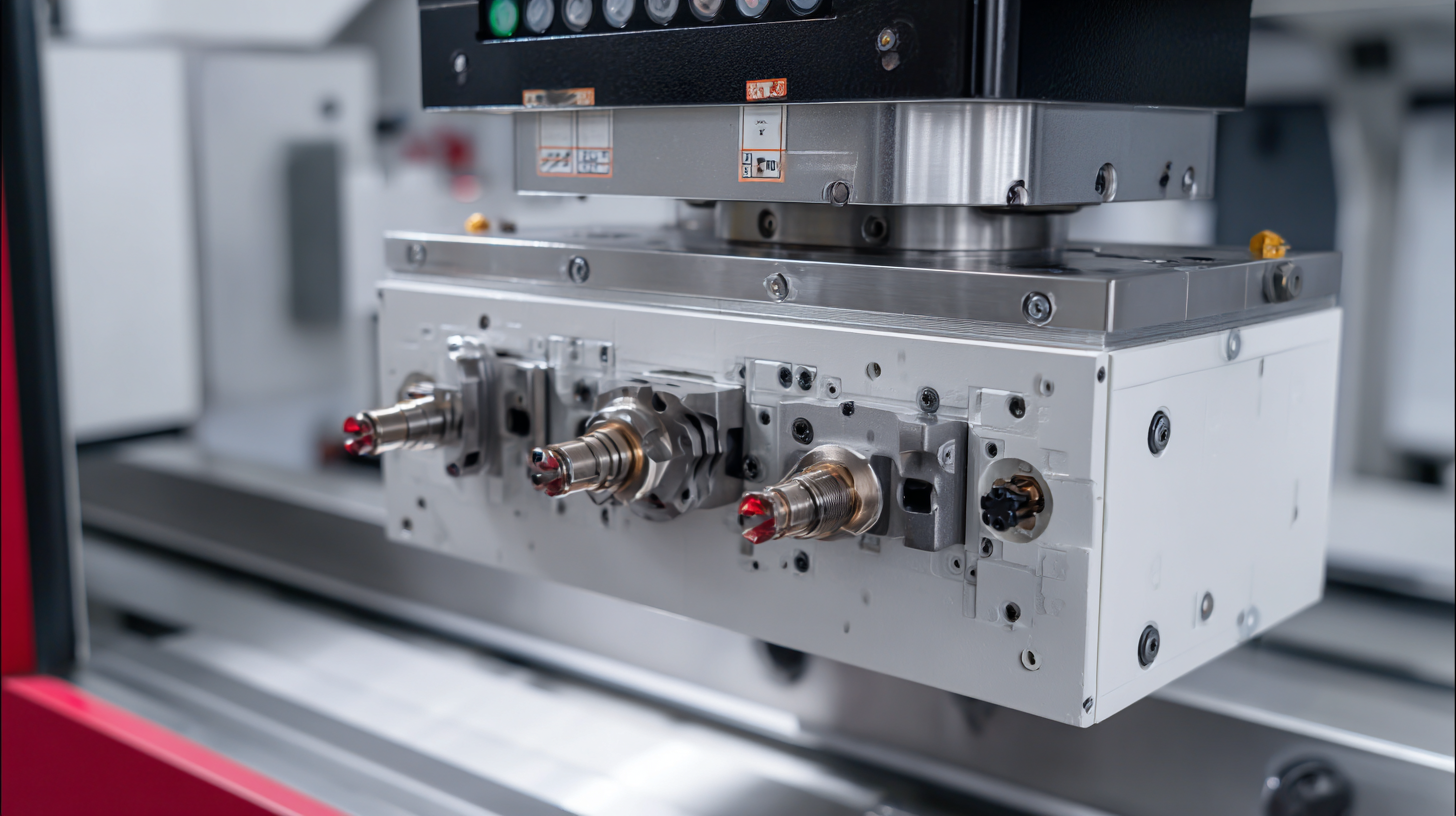
Related Posts
-
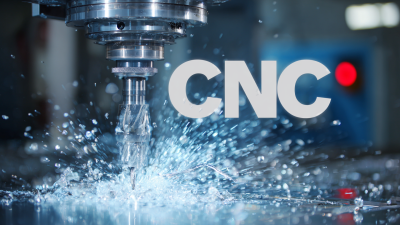
How to Select the Best CNC Machine Tools for Your Manufacturing Needs
-
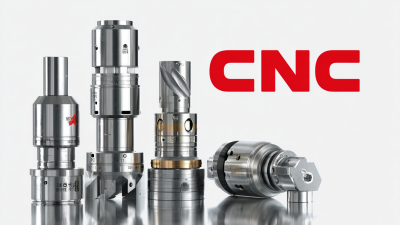
Unlocking Efficiency Through Innovative Applications of Best CNC Machine Tools in Various Industries
-
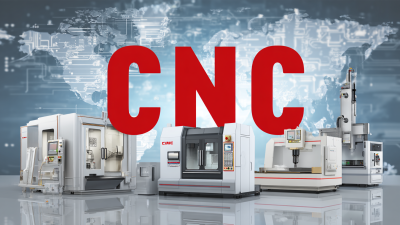
Understanding Import and Export Certifications for Best Different CNC Machines A Comprehensive Tutorial for Global Buyers
-
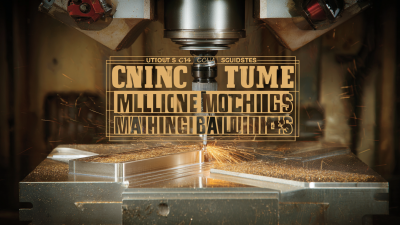
Ultimate Guide to Choosing the Best CNC Milling Machines for Your Business
-
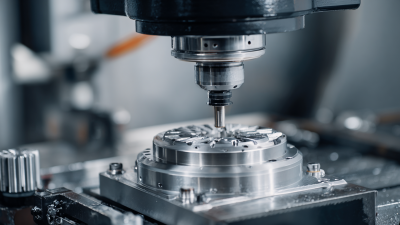
The Future of Precision: Advancements in Best CNC Machining Centers
-
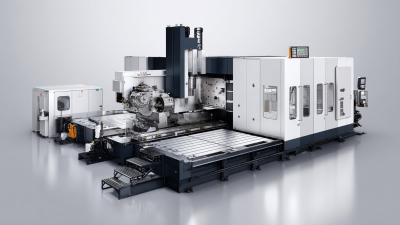
Solutions for Achieving Precision with the Best CNC Horizontal Boring Mill
